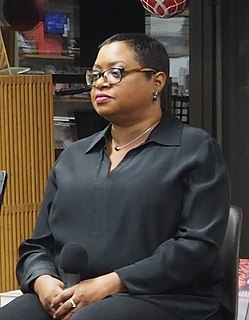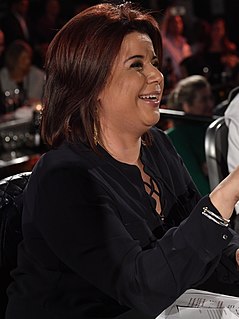A Quote by Van Jones
I think the African American community, the Latino community, the Native American communities have borne an unfair burden in the last century, and continue to.
Related Quotes
In the long run, we will need many more African-American, Latino, and Native American leaders, and leaders from low-income communities, who can bring additional insight and a deeply grounded sense of urgency, and who are the most likely to inspire the necessary trust and engagement among students' parents and community leaders.
I am honored to have Ajamu Baraka as a running mate. I think he brings enormous credibility in the disenfranchised communities, not just African American but Latino, Asian American and Native American. He is a recognized advocate for racial justice, economic justice and human rights, and I think this conversation is only just begun. It is very important.
You see the one thing I've always maintained is that I'm an American Indian. I'm not a Native American. I'm not politically correct. Everyone who's born in the Western Hemisphere is a Native American. We are all Native Americans. And if you notice, I put American before my ethnicity. I'm not a hyphenated African-American or Irish-American or Jewish-American or Mexican-American.
The strike and its outcome had an enormous impact on the system of education and on our lives as well. The strike began as a response to the college's refusal to hire Professor Nathan Hare [the so-called father of black studies], and certainly unified the college around issues of justice. These issues were reflected in many communities: the Asian American community, Hispanic community, Native American community.
I don't regret the fervor, because I do believe, in the African American community but also for other communities, and I know from talking to people, for communities around the world, the election of an African American to the most powerful office on Earth meant things had changed, and not just in superficial ways. That in some irreversible way the world was different.
You can expect to see a robust discussion and representation of those issues throughout the convention program. Not just from the nominee, but through other vehicles as well. Expect to see the African-American community, the Latino community, the LGBT community, and others represented on stage and in the substance of our policies throughout the week.
You know, when Trayvon Martin was first shot I said that this could have been my son. Another way of saying that is Trayvon Martin could have been me 35 years ago. And when you think about why, in the African American community at least, there's a lot of pain around what happened here, I think it's important to recognize that the African American community is looking at this issue through a set of experiences and a history that doesn't go away.
In community after community, there are unemployment rates among young African-Americans of 30 to 40 percent. Thirty to 40 percent! Kids have no jobs, they have no future. That is an issue that has got to be dealt with simultaneously as we deal with police brutality, voter suppression and the other attacks that are taking place on the African-American community.





































